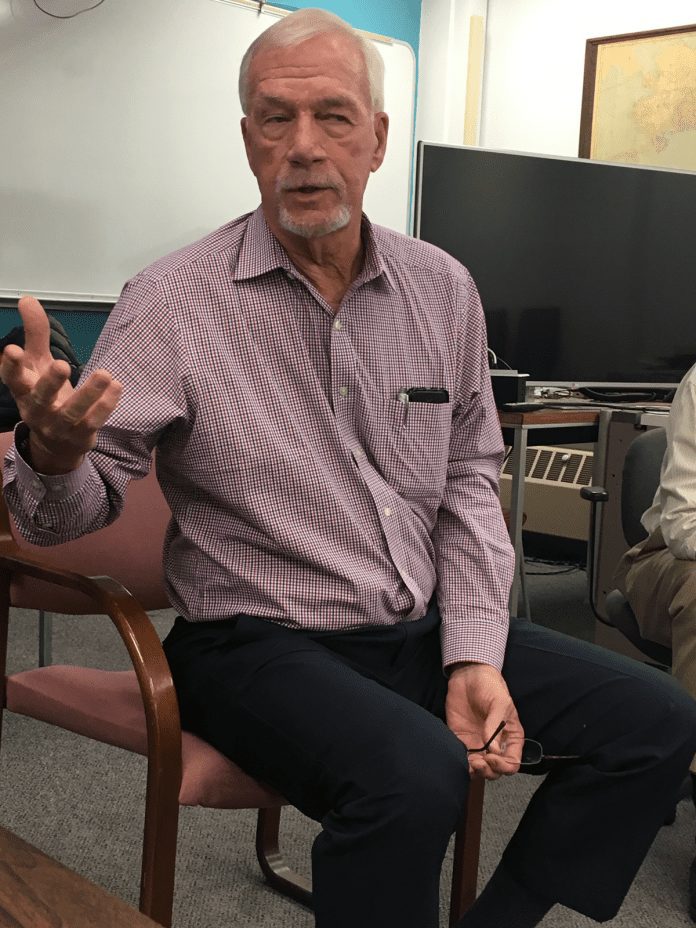
Boston Globe Editor at Large Walter “Robby” Robinson has a message for readers of small town community newspapers and why they are surviving: it’s because they provide information you can’t get anywhere else.
“I can’t say they are all flourishing, but the readers need them, and the advertisers need them, and its information that you can’t get anywhere else,” Robinson told members of Commonwealth North in Anchorage on July 18. He repeated the message about the importance of small town journalism the following day, at a luncheon hosted by the Mat-Su Valley’s Frontiersman in Wasilla.
“Many of the stories in big newspapers you can get anywhere else,” he said. “That’s the problem. For local papers, covering local issues is the answer.”
It can also lead to a Pulitzer Prize in journalism.
Over a decade ago Robinson led the Boston Globe’s Spotlight investigative reporting team that exposed widespread sexual abuse of children by Catholic priests in the Boston area and beyond. Their work, the subject of the 2015 award winning film “Spotlight,” won the Globe the 2003 Pulitzer Prize for Public Service.
Cordova is one of a diminishing number of small towns across America lucky to have its own community newspaper, established in 1914 to serve the community. In recent years The Cordova Times almost met its demise when Calista Corp. decided to cease operating its Alaska Newspapers subsidiary, but Jennifer Gibbins, then editor of the newspaper, stepped up to purchase the publication, which she continued to publish until selling the newspaper to the Native Village of Eyak in April 2016.
“I think of newspapers as the community gathering spot,” Robinson said. “It is where we exchange our views and narrow our differences as we understand each other’s perspective.
“We don’t teach civics the way we used to, or we don’t teach civics at all. Newspapers really are continuing education in civics for all of us all of the time, and they make civil engagement possible.”
For democracy to work well, journalism must work well too, but unfortunately that hasn’t been the case for the last two decades, he said, noting the decreasing number of newspapers nationwide and a major decline in the number of journalists employed by these newspapers.
Robinson also posted the question of how to rebuild public trust in journalism.
“If you poll Congress, you find that Congress is held in lower repute than the press …” he said.
“But when you ask people about their local news organizations you get a different answer, because local news is about health, education, the environment that are right in front of us every day.”
And while there has been a lot of criticism about what the press reports, Robinson said, he is more concerned about that is not being covered at all, “and that diminishes us all in a democracy,” he said. “Buy the damn paper. It doesn’t cost that much. For a week try the paper and don’t watch MSNBC, Fox News or CNN. If you do that for a week, you will be better informed, you will be enlivened. Your digestion will be better.”














